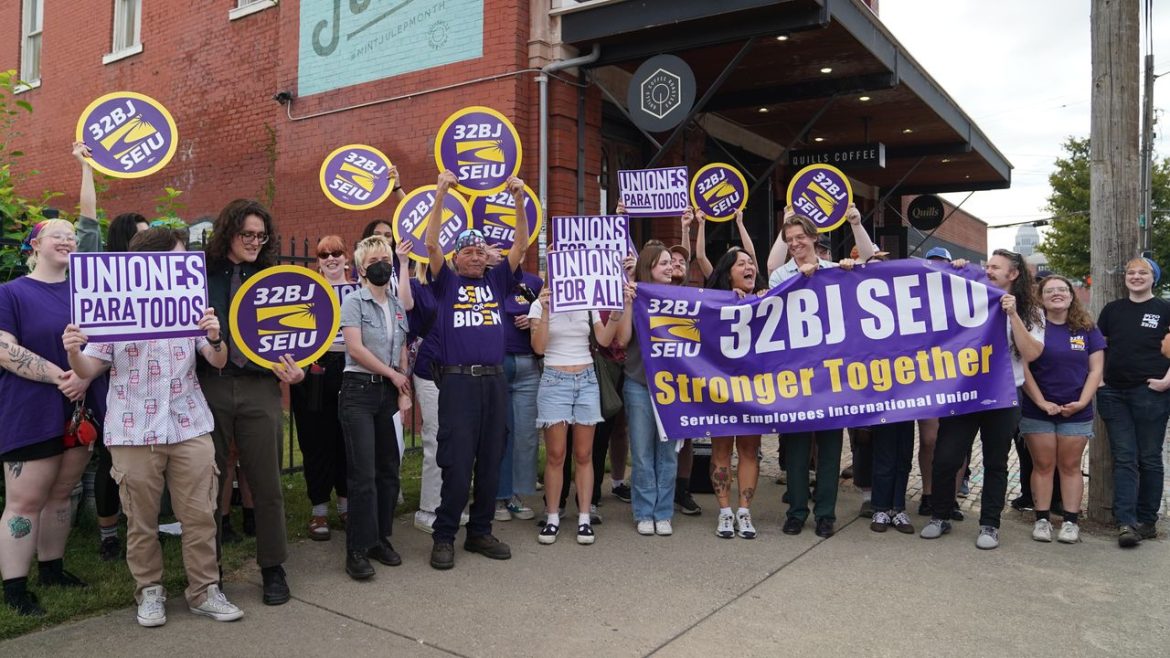
He thinks the Starbucks initiative has motivated other coffee establishments as well. “People are witnessing us confront this colossal employer,” he mentioned. “They’re seeing our victories.”
While achieving a union encourages other employees, obtaining a contract creates even greater enthusiasm. “It provides a very tangible example of what employees can accomplish,” noted Sharon Block, executive director of Harvard Law School’s Center for Labor and a Just Economy.
Almost two years after establishing their union, Colectivo employees achieved their initial contract in mid-2023, earning a 4% wage increase in the first year and a 2.7% increase the next, along with just cause protections and paid sick leave. The contract instantly attracted the interest of Intelligentsia employees, who had formed a union the previous year. Just as SPoT workers contributed their success to Colectivo, “they passed it along to Intelligentsia,” stated John M. Jacobs, business manager and financial secretary at the International Brotherhood of Electrical Workers Local 494, which represents Colectivo employees in Wisconsin.
Colectivo employees have additionally managed to expand on their accomplishments: This May they obtained a second contract, which was “significantly easier,” Jacobs remarked. The new agreement includes larger average wage increases, an extra holiday, and enhanced safety training.
Other shops have successfully landed an essential first contract, including baristas at Blank Street in New York City and Reanimator Coffee in Philadelphia.
Baristas are not just unionizing for better wages and protections; they aim to assist customers as well. Overworked baristas lack the time to maintain cleanliness in stores and may overlook critical matters like allergies. “Half of what we offer people is humanity and connection,” Dixon noted. “Our capacity to provide this is severely restricted by the immense limitations imposed on us by our employer.”
Despite the union election momentum among Starbucks baristas, the company remains a significant opponent to achieving a contract that enhances conditions. There were signs of optimism last year, when Starbucks and the union proclaimed a framework and conducted their initial bargaining session last April. However, the union contends that in December the company reneged on the framework. Workers are insisting that the company return to the negotiating table to address their fundamental demands for improved hours and staffing, increased pay, and resolving previous claims of unfair labor practices. They plan to strike on Red Cup Day, one of the busiest days for the company, on November 13 to advocate for progress toward finalizing a contract.

